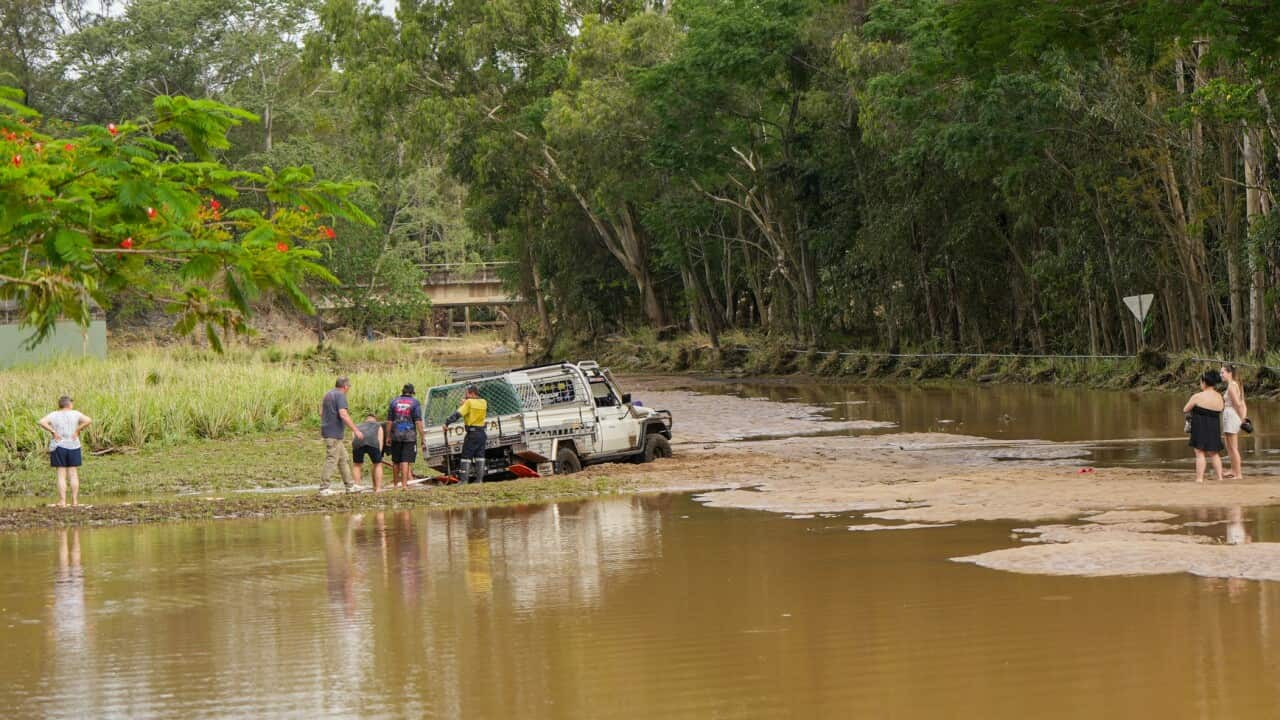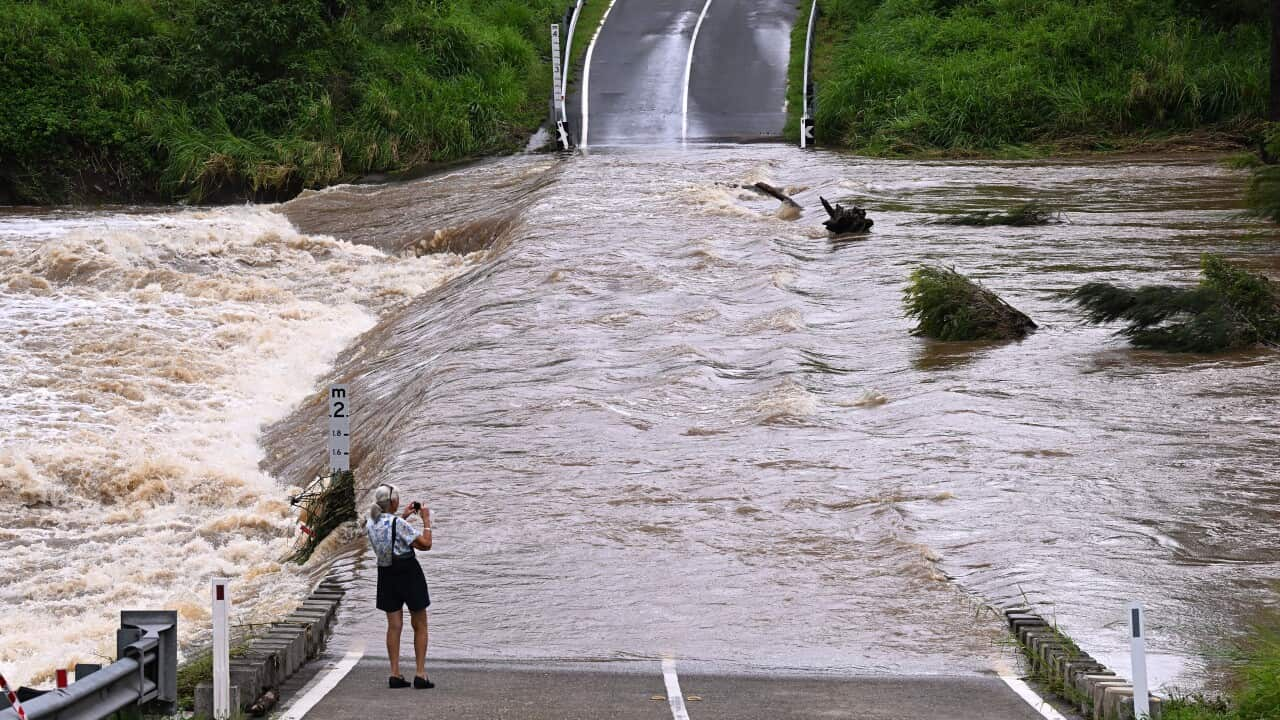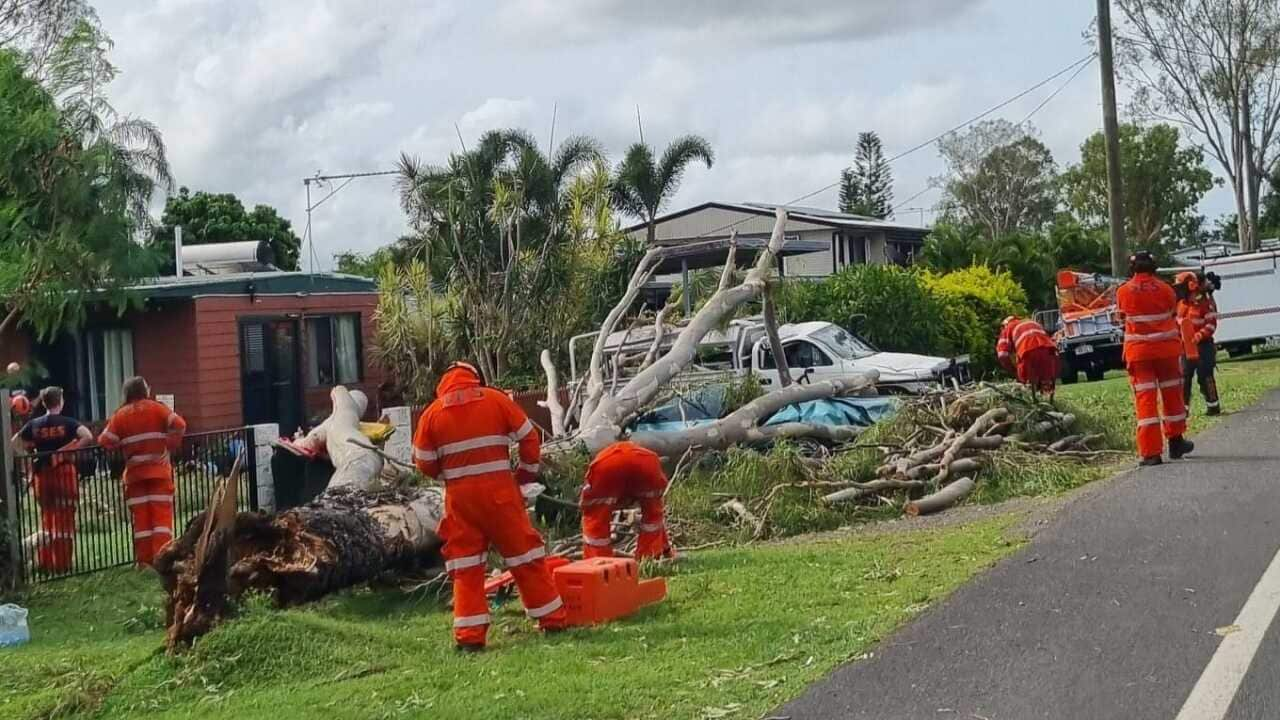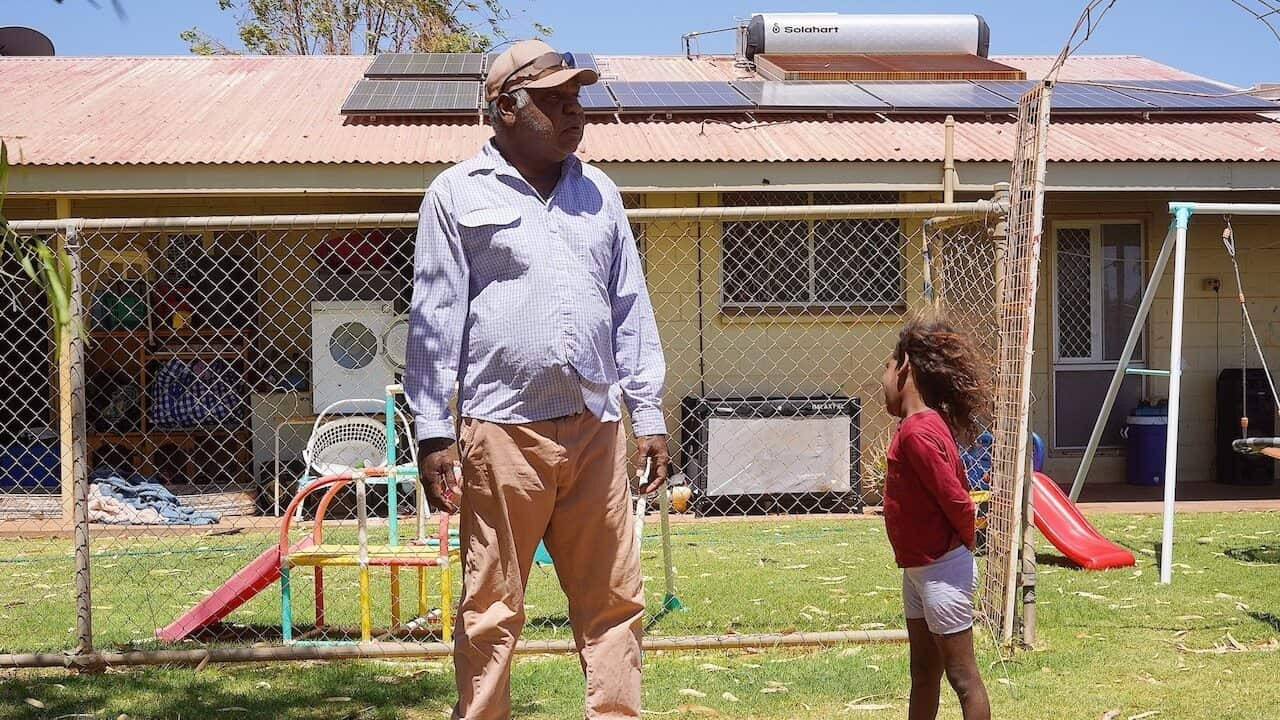More than two months after 300 people from the North Queensland Aboriginal community of Wujal Wujal , residents still don't have power.
Many are living in temporary accommodation in hostels and caravans or with families in Cooktown and Cairns some 300km away.
"I can't face my own people, I don't know what to say to them," Traditional Owner Kathleen Walker said.
"People need to go home.
We're here to ask government to do the right thing, my people need this energy project.
On Monday Ms Walker, Marie Shipton and Jabalbina Yalanji Aboriginal Corporation chief executive Josh Paterson will be part of a delegation presenting the case for Wujal Wujal to have their own renewable energy asset at the Queensland Energy development conference.
With the federal government committing to net zero, advocates are calling for clear pathways to include Indigenous communities in the clean energy sector.
Community run and owned energy
Assisted by a federal government scoping study, Wujal Wujal moved a 40-year vision for a hydro-electric asset into a business case in 2022.
Coupled with a solar and battery microgrid, they now have a plan to keep the power on, reduce electricity costs, create local jobs, and build economic empowerment.
In December, government-owned Ergon Energy assessed the damage to Wujal Wujal's electricity network, power poles and lines, in the wake of severe flooding that damaged infrastructure, including equipment relying on back-up power generation and storage.
According to the feasibility study, there is a case for installing a solar and battery microgrid and a hydro plant to both power the community and support Ergon's grid.
But, government has created barriers to the project going ahead.
Government barriers
Queensland legislated in October that the majority of renewable generation assets must have public ownership, which energy advocates say has prevented the development of new community-led renewable energy infrastructure, due to an absence of pathways for grid connection or regulatory approvals.
Wujal Wujal's Jabalbina Yalanji Aboriginal Corporation's application in March 2023 to install a community-owned small solar and battery system preceded this legislation, but was still rejected because the project offered no pathway for ownership by state-owned utility, Energy Queensland.

Indigenous community of Wujal Wujal in Far North Queensland. Credit: Jarni Blakkarly
If the money comes through, the community proposes the immediate construction of the community-owned solar and battery installation to keep the power on in case of future disasters, and following, the longer term construction of the hydro facility.
Equitable energy outcomes for mob
The construction of new transmission infrastructure presents an opportunity to facilitate First Nations' self-determination and participation in clean energy infrastructure, researcher Kathryn Ridge says.
In a discussion paper for the First Nations Clean Energy Network, Ms Ridge argues that governments and agencies need to do more than pay lip-service to including Aboriginal and Torres Strait Islander communities in energy transition.
"Discussions about First Nations involvement in new transmission infrastructure in Australia must move urgently beyond check-box-type consultation to rights-based conversations about genuine partnership and participation in all stages of the necessary transmission infrastructure build-out, including benefit sharing, partnerships, equity and ownership," she said.
"There is no more room for delay."
Ms Ridge said other jurisdictions, like Canada, had achieved better equity in transmission outcomes for Indigenous people by having more explicit legislative targets.
Getting the community home
First Nations Clean Energy Network are calling for stronger more meaningful policy reform.
The network's Jonathan Kneebone said many remote communities are currently reliant on diesel generators, but community energy projects would enable access to cheaper power with lower pollution and health risks.
"It's actually a way to also become more resilient to the effects of climate change and extreme weather events," he told AAP.
Not being able to return home has had a serious impact on Kuku Yalanji, Kuku Nyungul and Kuku Julunji community members.
The people of Wujal Wujal want to get their energy project approved - and they want to go home.
"Supporting Wujal Wujal's initiative to plan, build, operate and own clean energy and storage will lead to improved economic development, energy independence and productivity, and climate resilience, including environmental and health outcomes," Mr Paterson said.













